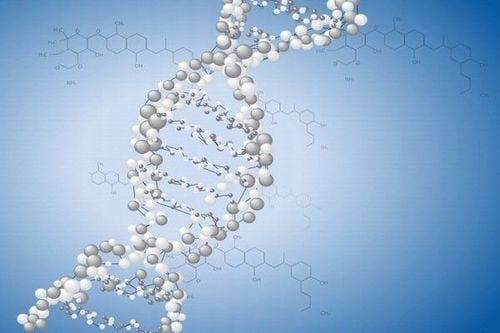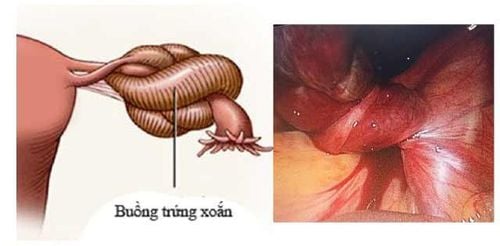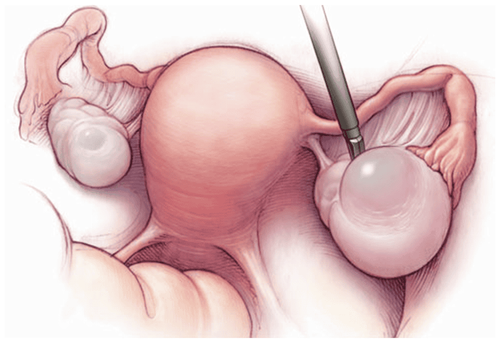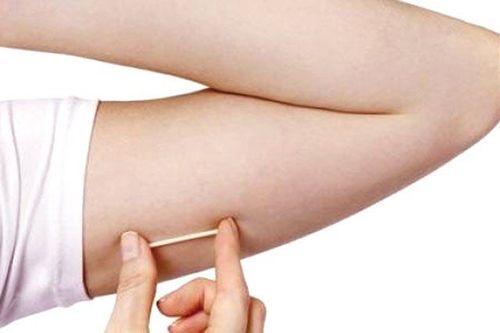This is an automatically translated article.
The article was consulted with Specialist Doctor I Le Hong Lien - Department of Obstetrics and Gynecology - Vinmec Central Park International General Hospital.Ovarian cyst is a disease not only seen in middle-aged women but also quite common in women during puberty. Puberty ovarian cysts can be caused by many factors and causes. This condition often seriously affects the reproductive health of women, even increasing the risk of infertility.
1. Overview of ovarian cysts in puberty
Ovarian cyst is a condition that results from ovarian dysfunction, causing the formation of an internal mass containing fluid or a complex mixture of components on the surface of the ovary. Ovarian cysts are usually a benign lesion appearing in women of childbearing age, especially in recent years, many cases of ovarian cysts have appeared in puberty.Usually, ovarian cysts are located on one side, accounting for up to 95%, only 5% appear on both sides at the same time and they can grow to many different sizes, usually only a few millimeters or very large up to several dozen cm.
Although most cases of ovarian cysts are benign and usually do not require medical intervention, in some cases ovarian cysts can cause dangerous complications such as:
Ovarian cysts torsion: When the tumor is large, has a long stalk, there is a risk of torsion. This is a surgical emergency that needs to be treated with surgery quickly because of the risk of tumor necrosis, rupture and infection, affecting the patient's life. Cystic rupture: Large ovarian cysts with a lot of fluid inside, there is a risk of rupture if there is an impact of external force if trauma, impact, hard labor... When the tumor burst, it will cause bleeding and risk Infections are high and, if not treated quickly, can be life-threatening. Compression of surrounding organs: With large tumors, they have the risk of compressing surrounding organs such as pressing on the rectum, causing constipation and straining. Pressure on the bladder causes frequent urination or urinary retention, if the ovarian cyst is very large, it can press on the blood vessels, causing edema in the lower extremities, pressing on the kidneys, causing fluid retention. In addition, it is dangerous for pregnant women when large ovarian cysts cause compression, making the fetus no space to develop, high risk of miscarriage, premature birth... Malignant cyst: Although The rate of malignant ovarian cysts is very low, but a small percentage of cysts can develop into cancer. The larger the tumor, the higher the risk of cancer. Most cases of malignancy in pubertal children are immature dermoid cysts.
2. Why do ovarian cysts occur during puberty?
At the onset of puberty, the hypothalamic-pituitary-ovarian endocrine axis begins to function. Therefore, it is difficult for children at puberty to avoid abnormalities in this development process. Here are some reasons that put girls in puberty at high risk of ovarian cysts:Overgrowth of the corpus luteum: During the development process under the influence of endocrine hormones, it leads to the formation of ovarian cysts. ovarian cyst. Heredity: Genetic factors are also responsible for this condition. If a mother has cysts or fibroids in her family, there is a 30-50% chance that her baby girl will also have it. Unsecured nutrition: An unsafe diet increases toxic factors and increases the amount of fat put into the body. When fat content indirectly causes obesity and early puberty, which leads to the risk of ovarian cysts. Excess HCG: The use of drugs or hormonal treatment can lead to lutein cysts and also cause ovarian cysts during puberty. Hormonal Abnormalities: A hormonal balance is very important, but for a number of reasons, hormonal stability can be abnormal, thereby increasing the risk of ovarian cysts. .

3. Signs to recognize ovarian cysts
Ovarian cyst is a common gynecological disease, but the manifestation is often unclear, even in girls at puberty. Especially small ovarian cysts, there are no special symptoms. However, if the tumor is large, there may be some symptoms such as:Dull pain in the lower abdomen, if the tumor is large or causes torsion, it can cause abdominal pain, severe pain. Abnormally large lower abdomen. Pale skin, flatulence, abdominal distension. Some cases may be accompanied by fever with no known cause. Irregular menstruation, heavy bleeding, menorrhagia. Chest pain, fatigue and weakness. Or flatulence, bloating, constipation. Urinary disorders such as difficulty urinating, urinary frequency, urinary incontinence... If the tumor is very large: You can feel an abnormal hard mass in the lower abdomen. In general, signs of ovarian cysts are difficult to recognize, often similar to other symptoms, so it is often difficult to recognize. If the child is going through puberty, but especially if there is a family history of the mother with ovarian cyst disease, it is necessary to conduct paraclinical tests such as abdominal ultrasound, x-ray...
4. How to get ovarian cyst?
Basically, the majority of ovarian cysts are benign, so if detected early, patients need to do the following:Small ovarian cysts that do not affect the patient's health usually do not need treatment. treatment that conducts follow-up examinations and ultrasounds about 3 menstrual cycles to assess tumor growth. If the tumor shrinks on its own, it will not require treatment, if it grows, drugs can be used to treat and limit tumor growth. If the cyst is large or if medical treatment does not improve, the patient has signs such as menorrhagia, heavy bleeding, pain in the lower abdomen, frequent urination... It is necessary to have surgery to remove the tumor to avoid complications. dangerous disease. A healthy diet limits the amount of fat in the body.

Currently, Vinmec International General Hospital has developed a basic gynecological examination and screening package to help customers detect inflammatory diseases early for timely treatment. The examination process at the hospital is always performed by a team of qualified doctors with many years of experience, combined with a system of modern machinery and equipment.
After the examination, the doctor will evaluate and give specific advice for each customer case. If you have any medical conditions, you can always use Vinmec hospital treatment services to ensure safety and quality.
Please dial HOTLINE for more information or register for an appointment HERE. Download MyVinmec app to make appointments faster and to manage your bookings easily.














